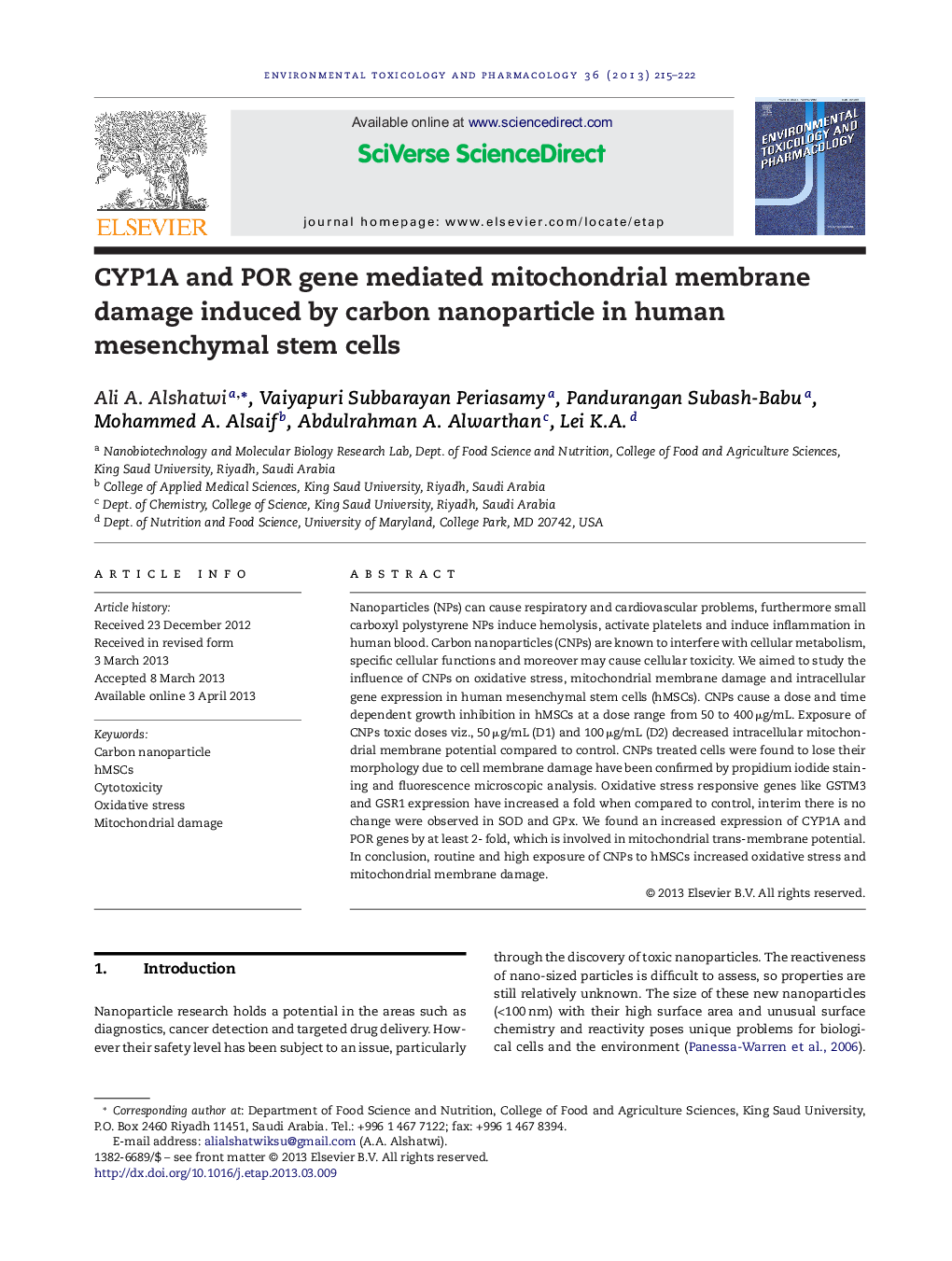| Article ID | Journal | Published Year | Pages | File Type |
|---|---|---|---|---|
| 2583054 | Environmental Toxicology and Pharmacology | 2013 | 8 Pages |
•Carbon nanoparticles (CNPs) interfere with cellular metabolism and cause cellular toxicity.•CNPs cause a dose and time dependent growth inhibition in hMSCs at a dose range from 50 to 400 μg/mL.•CNPs increase an oxidative stress and alter gene expression in hMSCs.•It causes mitochondrial membrane damage by increased expression of CYP1A and POR genes.
Nanoparticles (NPs) can cause respiratory and cardiovascular problems, furthermore small carboxyl polystyrene NPs induce hemolysis, activate platelets and induce inflammation in human blood. Carbon nanoparticles (CNPs) are known to interfere with cellular metabolism, specific cellular functions and moreover may cause cellular toxicity. We aimed to study the influence of CNPs on oxidative stress, mitochondrial membrane damage and intracellular gene expression in human mesenchymal stem cells (hMSCs). CNPs cause a dose and time dependent growth inhibition in hMSCs at a dose range from 50 to 400 μg/mL. Exposure of CNPs toxic doses viz., 50 μg/mL (D1) and 100 μg/mL (D2) decreased intracellular mitochondrial membrane potential compared to control. CNPs treated cells were found to lose their morphology due to cell membrane damage have been confirmed by propidium iodide staining and fluorescence microscopic analysis. Oxidative stress responsive genes like GSTM3 and GSR1 expression have increased a fold when compared to control, interim there is no change were observed in SOD and GPx. We found an increased expression of CYP1A and POR genes by at least 2- fold, which is involved in mitochondrial trans-membrane potential. In conclusion, routine and high exposure of CNPs to hMSCs increased oxidative stress and mitochondrial membrane damage.
